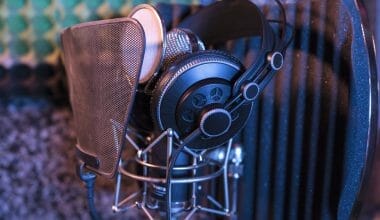Do fans cause hearing loss? Last September, Kansas City Chiefs fans broke the world record for loudest stadium cheer with a 142.2 decibel shout. While the cheers may seem harmless, they can have a damaging effect on your hearing. It used to be thought that most hearing loss occurred due to hair cells degrading with age. But new studies have come out suggesting that fan noise is causing hearing loss. The louder your stadium cheers, the more likely it is that your hearing will be permanently damaged.

Loud noises
It is no surprise that loud noises can lead to hearing loss. The reason is simple: exposure to loud noises damages hair cells in the inner ear, which transform sounds into electrical signals. These hair cells can be damaged by drugs, disease, or simply normal aging, and some types of noise may cause them to die. But recently, a new group of relatively young people has been diagnosed with hearing loss due to exposure to loud noises. For example, a large number of soldiers who have returned from foreign war zones have lost hair cells in their inner ear.
Desk fans
You might think desk fans can cause hearing loss, but this isn’t necessarily the case. Desk fans don’t produce enough noise to damage your hearing, so they’re not the culprit. Even giant fans, which contractors often use to dry up warehouses or floors that are damaged by water, are loud and can cause hearing damage. They are also often heavy-duty, industrial grade models. If you’re worried about hearing damage, consider a desk fan made by Vornado, which is nearly silent.
Outdoor noises
Loud noises are responsible for the loss of hearing in more than 30 million people worldwide. In New York City alone, one in six adults experience ringing in the ears or other noise disturbances in the home. According to the Health Department, average outdoor noise levels were higher than federal guidelines in 2012. While ringing in the ears is an occasional problem, hearing loss caused by loud noises can be permanent. If you’re worried about experiencing hearing loss at an outdoor concert, consider wearing ear protection or finding a quieter place to sit.
Recreational noises
It is no secret that excessive noises can damage our hearing. Recreational noises, such as concerts and sporting events, are among the leading causes of hearing loss. As a result, the cumulative effects of noise exposure have detrimental effects on the health of millions of people. Recreational noises can cause hearing loss due to a number of factors. This article examines the potential effects of recreational noises on hearing loss and how to protect yourself from the risks.
Workplace noises
Exposure to loud noises can damage your hearing over time. The Centers for Disease Control estimate that as many as 22 million workers are exposed to potentially damaging noise levels every year. While there is no cure for hearing loss, you can protect yourself by taking the necessary steps to reduce your exposure. The noise in your workplace is measured using sound-measuring instruments, including octave band analyzers, sound level meters, and noise dosimeters. If you notice any sudden, severe, or prolonged hearing loss, visit your physician immediately.
Sleep apnea
If you snore loudly during the night, you might be suffering from sleep apnea. Sleep apnea can damage the inner ear by causing blood flow to the ear to decrease, thereby reducing oxygen supply to the acoustic organs. This in turn leads to permanent hearing loss, which is referred to as sensorineural hearing loss.

